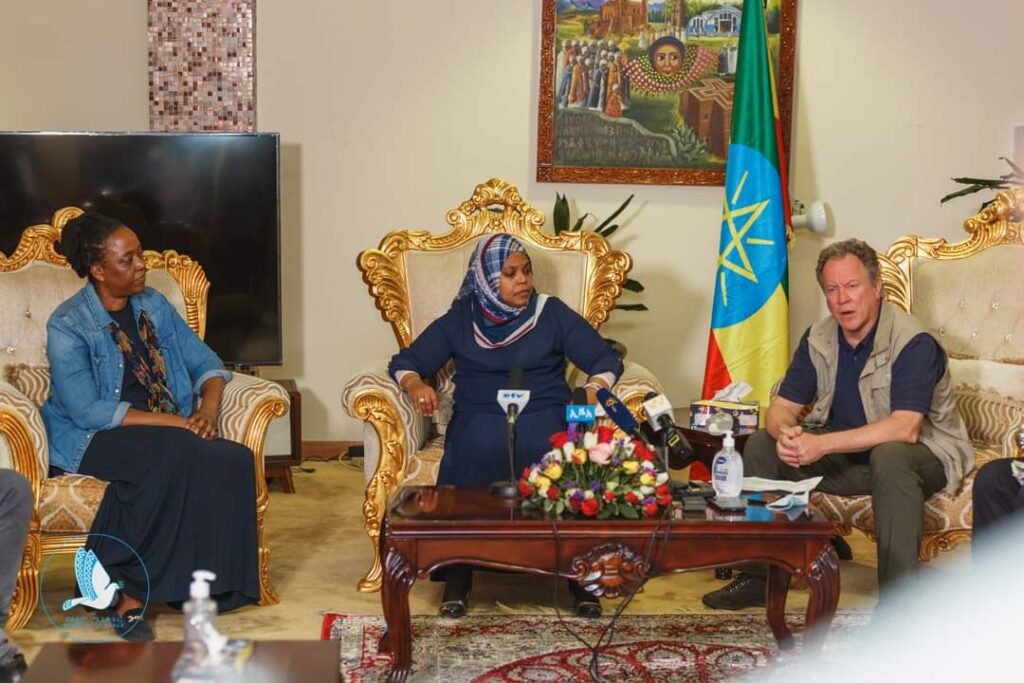The Minister of Peace, HE Muferihat Kamil, the Executive Director of the World Food Programme, David Beasley, and the United Nations Resident and Humanitarian Coordinator in Ethiopia, Catherine Sozi completed a joint visit to Mekelle in Tigray Region, aiming to highlight the need for a strong partnership to rapidly scale up a Government-led collective response to meet the immediate humanitarian needs of people in Ethiopia’s Tigray Region.
Mr. Beasley commended the emergency food assistance that the Government and partners have already provided to the people of Tigray since the onset of the crisis, reaching almost 1.8 million people with emergency food distributions. 26,000 Eritrean refugees residing in two camps have also received food and nutrition assistance.
“But we must do more, together, to meet the needs of the population,” said Mr. Beasley, noting with concern that, “Latest preliminary estimates indicate that 2.5 to 3 million people in the region require emergency food assistance. Reports indicate that the nutrition situation requires greater attention, with young children and pregnant and lactating mothers the most vulnerable.”
Minister Muferihat indicated that the Government of Ethiopia has welcomed recent positive engagements with the Government by senior UN officials, including the Under-Secretary-General for Safety and Security, the High Commissioner for Refugees, and the Executive Director of the World Food Programme.
“To ensure that humanitarian assistance in Tigray can be expanded and intensified without delay, the Government is moving with urgency to approve requests for international staff movements into and within Tigray, “ said the Minister, adding that, “Several such requests have been approved over the past few days and the process of rapid and streamlined approvals will continue. The Government will also review visa requests for international humanitarian staff with urgency and priority. Communication capability for UN and humanitarian partners with significant operations in Tigray will be enhanced.”
Confirming the critical importance of enhanced operational presence and communication capability to allow UN agencies and humanitarian partners to scale up humanitarian interventions in Tigray, Ms. Sozi said, “These recent and anticipated developments related to staff movement approvals and communication capability will allow international agencies to design and manage operations safely and responsibly, in close partnership with the Government. This is a tremendous step forward.”
Mr. Beasley announced that WFP has accepted a request from the Government to augment the transportation capacity of the Government and partners to deliver humanitarian assistance into and within Tigray. WFP has also agreed to provide emergency food relief assistance to up to 1 million people in Tigray and launch a blanket supplementary feeding intervention to assist up to 875,000 nutritionally vulnerable children and pregnant and lactating mothers.
These agreed WFP contributions will require USD 107 million to be implemented over the coming six months in areas and communities jointly identified and prioritized with the Government based on joint assessment where feasible.
MoP







